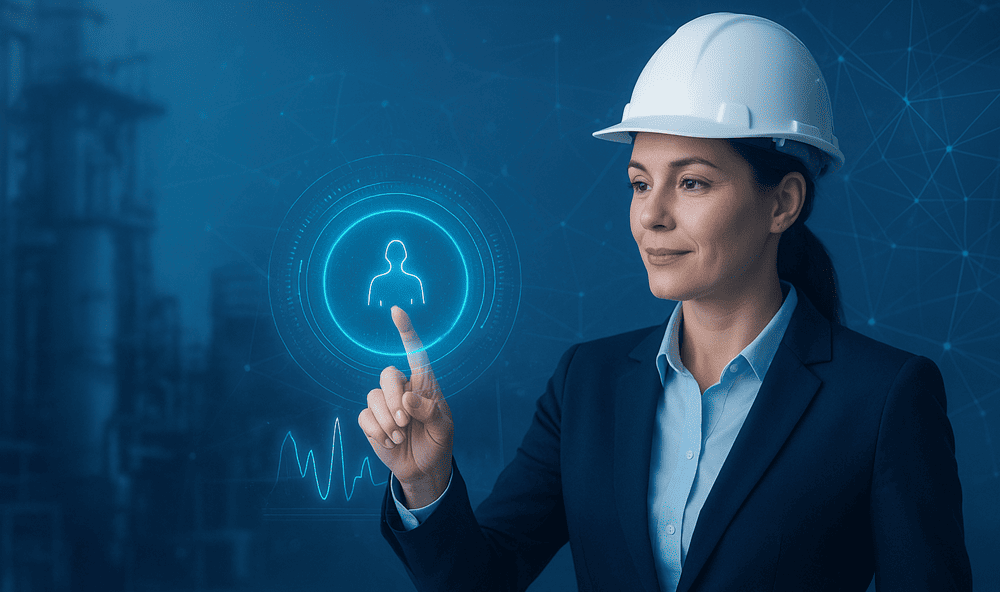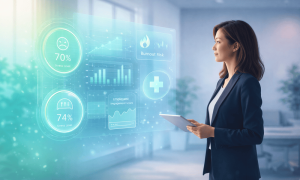In industries where the pace never slows, from mining sites to hospital wards, stress is no longer an occasional challenge. It’s a daily reality. The consequences of unmanaged workplace stress go beyond lost productivity; it impacts safety, decision-making, and employee morale. That’s where stress management AI is changing the game, offering tools that are proactive, personalized, and accessible at scale.
The Rising Cost of Workplace Stress
According to the American Institute of Stress, workplace stress costs U.S. businesses over $300 billion annually in absenteeism, turnover, and decreased productivity. These numbers don’t even touch the human cost: burnout, disengagement, and a decline in overall health. For industries where downtime can mean millions lost or safety risks, ignoring stress is simply not an option.
This is where technology, specifically AI for stress steps in, providing targeted interventions to address problems before they spiral.
What Is Stress Management AI?
Stress management AI combines advanced algorithms, biometric data analysis, and real-time feedback to monitor and manage stress levels. Think of it as a digital stress coach that works quietly in the background, spotting early signs of strain and delivering timely solutions.
Key capabilities often include:
- AI stress detection through wearable devices or behavior analysis
- Real-time stress relief technology such as guided breathing or micro-break reminders
- Personalized coping strategies based on historical stress patterns
- Data-driven recommendations for managers to support their teams
Unlike traditional employee assistance programs, which are often reactive, AI-based tools deliver AI-driven stress support continuously helping employees maintain steady performance instead of recovering after burnout.
Why Industry Leaders Are Paying Attention
For executives, the promise of stress management AI isn’t just about helping employees feel better, it’s about safeguarding the entire operation. In industries like construction or mining, a momentary lapse in concentration due to stress can lead to costly mistakes or safety hazards. In healthcare, mental fatigue can affect patient outcomes.
Leaders are turning to AI because it:
- Scales effortlessly – One system can support hundreds or thousands of employees simultaneously.
- Integrates into daily work – Whether in the office, on-site, or remote, AI tools adapt to each role.
- Generates measurable results – From reduced sick days to improved retention, the ROI is tangible.
The Role of Personalization in Stress Support
One of the biggest advantages of AI is its ability to adapt to individual needs. Instead of generic advice, employees receive strategies that work for them. For example:
| Industry | Common Stressors | AI-Powered Interventions |
| Mining | Long shifts, remote work, safety concerns | Real-time stress alerts, micro-break scheduling |
| Healthcare | Emotional strain, long hours | Guided mindfulness exercises between patient rounds |
| Construction | Physical strain, tight deadlines | Fatigue monitoring, on-site recovery prompts |
| Real Estate | Client pressure, irregular hours | Task prioritization alerts, workload balancing recommendations |
This personalization boosts employee stress resilience and helps maintain steady productivity even in high-pressure environments.
Addressing the Human Side of Technology
Some leaders worry that AI solutions might feel impersonal. In reality, well-designed stress management AI enhances human connection rather than replacing it. By providing accurate, real-time data, managers can have more informed, empathetic conversations with their teams.
For example, AI insights can highlight when an employee might need additional mental health coaching or access to burnout prevention programs. When combined with initiatives like workplace wellbeing workshops or mindfulness tech, AI becomes part of a supportive ecosystem rather than a standalone fix.
Practical Benefits of Stress Management AI
Here’s what organizations often see after implementing AI-based stress tools:
- Early detection of burnout before it escalates
- Lower turnover and higher retention rates
- Increased productivity without extending working hours
- Better compliance with safety protocols in high-risk industries
- Stronger employee mental health culture
One manufacturing company reported a 25% reduction in stress-related sick days after introducing an AI-based support platform, proving the technology’s direct impact on operational efficiency.
Overcoming Resistance to Adoption
Not all employees will be comfortable with AI monitoring their stress levels. To address this, organizations must:
- Communicate transparency – Be clear about what data is collected and how it’s used.
- Highlight the benefits – Emphasize that the goal is personalized wellbeing, not performance policing.
- Offer opt-in features – Allow employees to choose how they interact with the AI.
- Integrate with existing wellness programs – Combine AI with human-led anxiety relief sessions or peer support groups.
Building an AI-Enhanced Workplace Wellness Strategy
A strong implementation plan is essential. Here’s a recommended framework:
- Assessment – Identify stress hotspots in your organization.
- Tool Selection – Choose a AI wellness coach that matches your industry’s needs.
- Training – Ensure employees and managers understand the tool.
- Integration – Align AI tools with workplace wellness and health policies.
- Review & Iterate – Use AI-generated insights to adjust programs over time.
The Future of Stress Management AI
Looking ahead, expect stress management AI to become even more intuitive. Emerging trends include predictive stress modeling, integration with wearable health trackers, and AI that can adapt interventions in real-time based on both environmental and behavioral cues.
In a world where workplace pressures aren’t slowing down, the organizations that thrive will be those that invest in stress relief technology that is as dynamic and adaptable as their people.
Final Thought
Stress will never disappear from the workplace entirely, but how we respond to it is changing. By combining AI stress detection with compassionate leadership and robust workplace wellbeing initiatives, companies can build teams that are not just surviving high-pressure environments — they’re thriving in them.
Quick Takeaways for Leaders
- Primary Benefit: Continuous, proactive stress monitoring and support.
- Key Impact: Improved safety, productivity, and retention.
- Ideal Fit For: High-stress industries like mining, healthcare, construction, and real estate.
- Long-Term Goal: Foster a culture of personalized wellbeing backed by data-driven insights.







